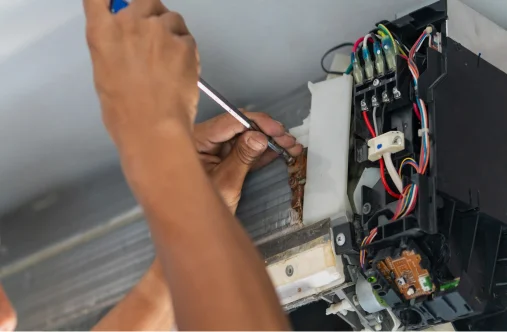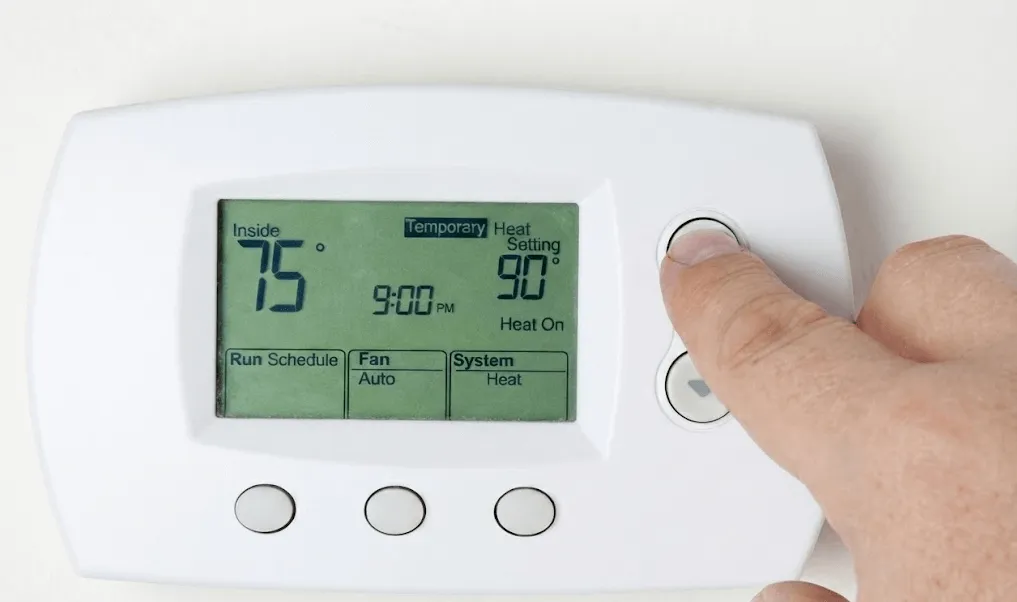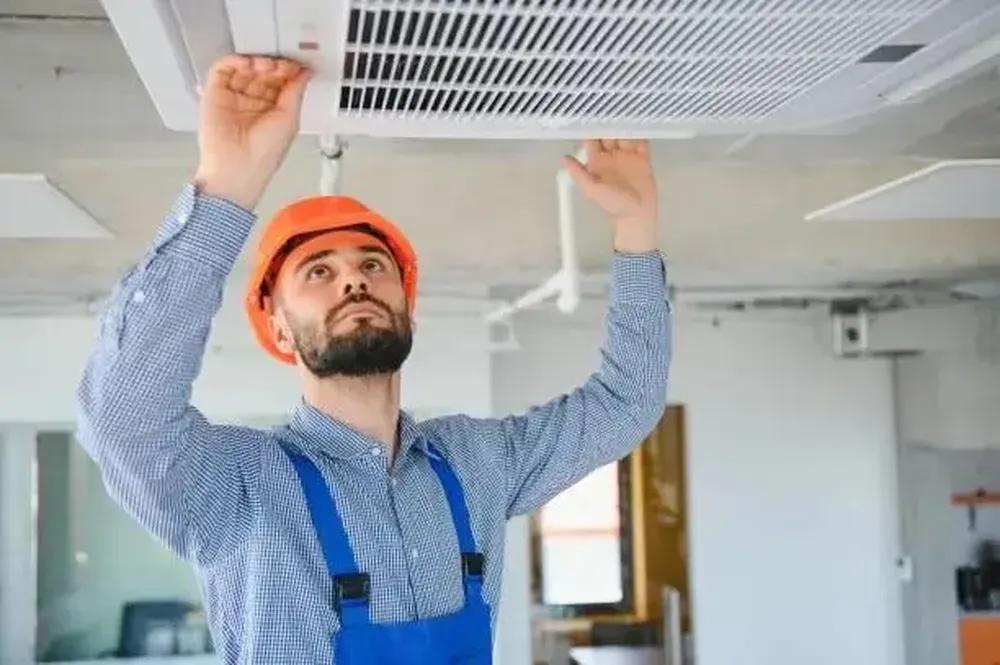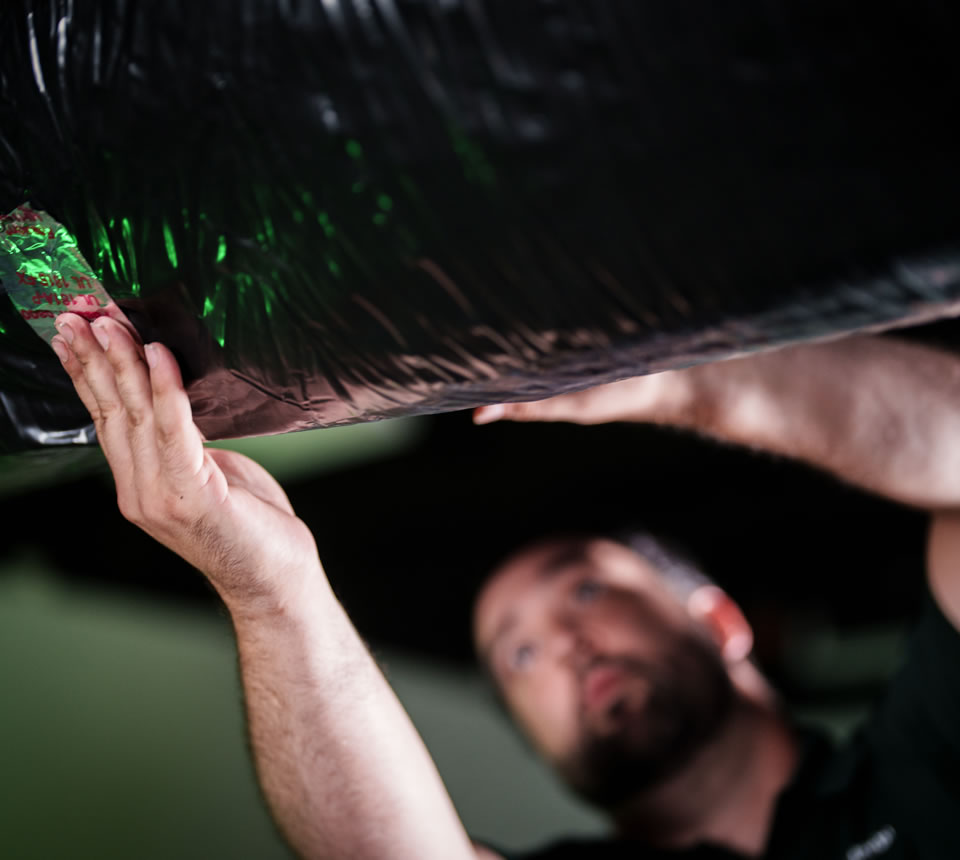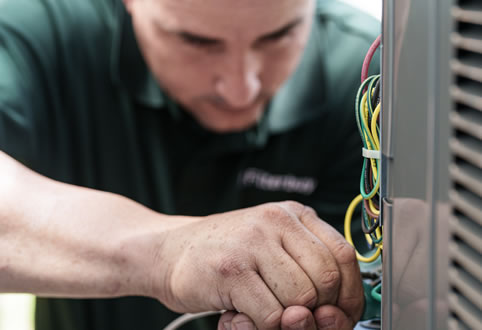It’s common to wonder if you can install a new AC yourself. Knowing some HVAC basics can make it seem doable. But in reality, it’s complicated. It’s risky. And it’s often more expensive than hiring a professional.
This guide explains what DIY installation involves. You’ll see the tools and safety steps required. You’ll also learn why hiring experts like Filterbuy HVAC Solutions is the smarter choice.
Top Takeaways
- Doing your own AC replacement takes advanced knowledge and the right tools.
- Doing it yourself HVAC work carries major safety risks with electricity and refrigerants.
- Mistakes during HVAC DIY install often lead to bigger costs later.
- Pros handle permits, codes, and technical details the right way.
- Filterbuy HVAC Solutions saves you time, money, and stress.
Basic HVAC Principles
Air conditioning systems are not simple machines. They include parts like variable-speed motors and multi-stage compressors. These require technical knowledge to install correctly.
Efficiency is another key factor. An efficient system cools your home while using less power. That saves money and reduces strain on the environment. But without proper training, you could make mistakes that lower efficiency. That leads to higher costs in the long run.
Tools Needed for AC Replacement
Thinking about DIY HVAC installation? You’ll need more than a basic toolbox. Safe installation requires:
- HVAC gauges – for refrigerant handling and pressure checks
- Multimeter – to test electrical wiring
- Pipe wrenches – to secure fittings
Tools alone don’t ensure safety. Even small wiring or refrigerant slips can result in harm.
Installation Safety Tips
AC unit work involves genuine safety risks. To stay safe, you must:
- Shut off all power before starting
- Use gloves and eye protection
- Handle refrigerants correctly. EPA requires capture and safe disposal.
- Use proper lifting gear for heavy parts
Skipping these steps leads to injuries, fines or a broken system. This is one of the main reasons experts recommend professional service instead.
Step-by-Step AC Unit Replacement Guide
Here’s a simplified view of what replacing an AC unit involves:
- Identify your current system and the correct new unit.
- Shut off power. Disconnect wiring and recover refrigerant safely.
- Remove the old unit and prepare connections.
- Install the new system and follow manufacturer instructions.
- Run system tests to confirm performance and safety.
On paper it may look straightforward. But every step requires technical skill. Mistakes cause breakdowns, code violations or warranty loss.
Common Challenges and Costs
Homeowners consider DIY because they want to save money. But hidden costs add up fast:
- Buying specialized tools
- Fixing mistakes
- Paying fines for code violations
- Replacing damaged parts
It’s natural to wonder how much is a new AC unit or even search for air conditioner replacement near me to compare prices. The truth is, improper installation can end up costing more than hiring a professional from the start. If you’re asking yourself how much is a new air conditioner unit, the answer is—it depends on size, efficiency, and installation needs. But one thing is clear: paying for expert service saves money in the long run.
Supporting Facts and Statistics
Proper HVAC installation is vital. It saves energy and lowers bills. This is according to the Office of Energy Efficiency and Renewable Energy.
But when mistakes happen, the costs add up. U.S. homeowners spend around $14 billion annually on HVAC repairs and services. Many of these expenses come from poor installation or skipped maintenance.
The CDC also warns of the dangers of extreme heat. In 2021, 1,600 Americans died from heat-related causes, with 30 in Florida alone. A properly installed AC system from a professional isn’t just about comfort—it’s about safety.
Why Hiring a Pro Is Better
Experts agree HVAC installation is best left to licensed technicians. With Filterbuy HVAC Solutions, you get:
- A system installed safely and correctly the first time
- Honest assessments and no surprise costs
- Quick service to restore comfort when your AC breaks down
- Ongoing support to keep your unit running efficiently
Filterbuy HVAC Solutions employs skilled repair and installation technicians. They know how to meet code requirements, protect your warranty, and maximize efficiency.
Final Word
Yes, it’s possible to try replacing an AC unit yourself. But the risks, costs and safety concerns make it a bad idea for most homeowners.
Hiring Filterbuy HVAC Solutions is the smarter investment. You’ll avoid mistakes, save money in the long run, and enjoy reliable cooling when it matters most.
Discover more about AC replacement and safer alternatives at Filterbuy.com.
Frequently Asked Questions
Is it hard to replace an AC unit on your own?
Yes. Many people think about a DIY AC install. But costs pile up quickly. The model, brand, and size affect the price. Then you add delivery, installation and hauling away the old system. Doing it yourself often ends up more expensive than hiring a pro.
Can I install my own AC unit?
People often ask, “Can I install my own AC unit?” It is possible. But very risky. Replacing a unit means safely removing refrigerant, handling wiring and setting up the new system correctly. Mistakes can damage the unit. It can also cancel the warranty or cause injury.
Can you install HVAC yourself legally?
Most places require permits. To get them, you need a licensed contractor. Skipping this step means fines or even problems when selling your home. So if you’re wondering, “Can you install HVAC yourself?” the answer is usually no.
How much does it cost to replace an AC unit??
Replacement costs usually run from $2,500 to $7,500. Higher-end models may cost more. The size of your home also matters. A smaller 1,500 sq. ft. home will need a less expensive unit than a 2,000 sq. ft. home
What happens if I try to install the AC myself?
Improper installation makes the system less efficient and can damage it. Energy use goes up, cooling goes down, and bills get higher. This is a common issue with DIY HVAC replacement.
How much is a new AC unit for a 1,500 sq. ft. house?
A home this size usually needs 21,000–24,000 BTUs. Costs depend on the unit and where you live, but expect several thousand dollars.
Do I have to replace the whole AC or just the outdoor unit?
Some ask, “Can you replace just the inside AC unit?” or only the outdoor one. You can, but it’s not the best option. Replacing both parts together makes the system run better and saves money long-term, even if it raises upfront costs. The replacing outside AC unit cost alone can still be high.
How much does an AC unit cost for a 2,000 sq. ft. home?
Bigger homes need more cooling power. It’s usually 3.5 to 5 tons. Units often cost $2,500 to $7,500, and installation is extra.
What is the most expensive AC part to replace?
The compressor is the priciest. It costs $1,350 to $2,300. For older systems, replacing the entire unit may be smarter.
Can a homeowner buy an AC unit directly?
Yes, but picking the right size is key. Too small won’t cool enough. Too big will waste energy and wear out faster. This is why the cheapest way to replace HVAC system is often through a pro who makes sure the size and setup are correct.
How long does it take to replace an AC unit?
Most installs take 4–8 hours. If major ductwork changes are needed, it can take 2–3 days.
Does home insurance cover AC replacement?
It depends on your policy. Some cover certain damages, but deductibles still apply. Always read your plan carefully.
What about DIY central air conditioning kits?
Some sellers offer DIY central air conditioning kits, but they rarely meet code and may void warranties. They seem cheaper, but mistakes can make them more costly in the end.
How to replace AC safely?
Many homeowners ask, “How to replace AC without trouble?” The truth is, it takes training, permits, and tools. If you’re not licensed, the safest option is hiring a professional.
How to install central air conditioning yourself?
You might wonder, “How to install central air conditioning yourself?” In most cases, you can’t do it legally without a permit. Even if you try, the risks of damage, leaks, and high repair bills are high.


